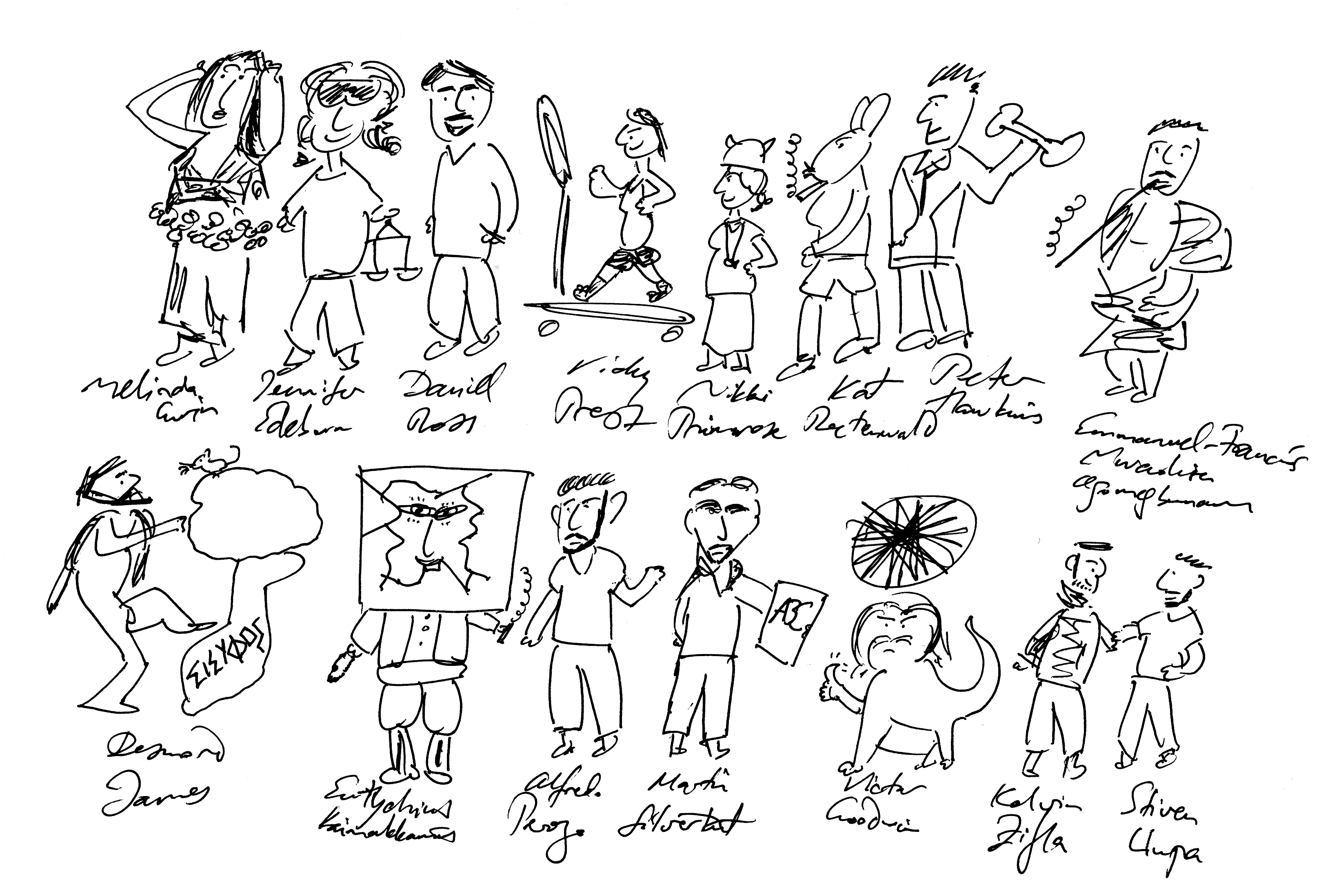As OP clarified elsewhere, the prevalent account for the name Hades is that it originally had a digamma in it, and meant Unseen: Hades – Wikipedia. Ἀϝίδης A-wídēs > Ἀΐδης Ā-ï´dēs > ᾌδης Ā´idēs. The archaic wid– stem for ‘see’ is the same as the stem vid– in Latin, and wit in English. (The terms for know and see were interchangable in Indo-European; in fact the Ancient Greek for ‘know’ is the perfect tense of the verb for ‘see’.)
It is also true that the Digamma ϝ, which represented the letter /w/ in Archaic Greek, eventually came to look like a ϛ in the Middle Ages, when it was only used to represent the number 6.
That’s all there is to OP’s claim. The rest… no:
- The digamma only started looking anything like a sickle in cursive writing in late antiquity—certainly after Christ.
- Even if Bean-Man (Cyamites) was Hades, and not just a local hero, his worship in Athens would have long predated the digamma looking like a sickle; he is mentioned in Pausanias.
- The digamma looked like an F from the time it was taken from Phoenecian, up until the time it was abandoned as a letter in the various dialects. (The numerical form had moved into a different glyph, that looked like a square C; that’s where the sickle shape comes from.) Bean-Man was celebrated in Athens, and Athens lost its /w/ before writing in Attic is attested.
So not only is it implausible that Bean-Man is somehow an allusion to the missing sickle-letter in Hades’ name; the time frames for Bean-Man, the sickle letter, and the pronunciation of /w/ in Hades are off by centuries.
